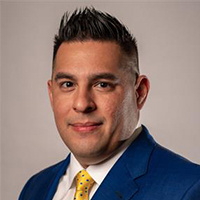Mont Belvieu Felony Lawyer, Texas
Sponsored Law Firm
-
 x
x

Click For More Info:
-
Law Office of Robert R. Jones III
2411 Emancipation Ave, Suite 202, Houston, TX 77004» view mapCriminal Defense Expert Representation for Reasonable Rates
If you need representation, call me 24/7.
800-883-8760
Charles August Banker
✓ VERIFIEDMr. Banker is a board certified specialist in criminal law with 30 years experience. He is dedicated to the best interest and well-being of those he r... (more)
Marshall Douglas Murphy
Doug Murphy stands as a prominent figure in the legal realm of Houston, Texas, with a focus on Criminal Law and DWI Defense. His career, which began i... (more)
Mervyn Milton Mosbacker
✓ VERIFIEDMy mission is to vigorously fight for my client and to make sure my client is protected from unfair and abusive government or law enforcement actions.... (more)
Adam W. Capetillo
✓ VERIFIEDMr. Capetillo was born, raised, and still resides in Fort Bend County, Texas. He graduated from B.F. Terry High School as a fighting Terry Ranger Base... (more)
John M. Petruzzi
FREE CONSULTATION
CONTACTFREE CONSULTATION
CONTACTDavid L Singer
FREE CONSULTATION
CONTACTFREE CONSULTATION
CONTACT Robert Jones San Antonio, TX
Robert Jones San Antonio, TX AboutLaw Office of Robert R. Jones III
AboutLaw Office of Robert R. Jones III Practice AreasSpecializations
Practice AreasSpecializations




